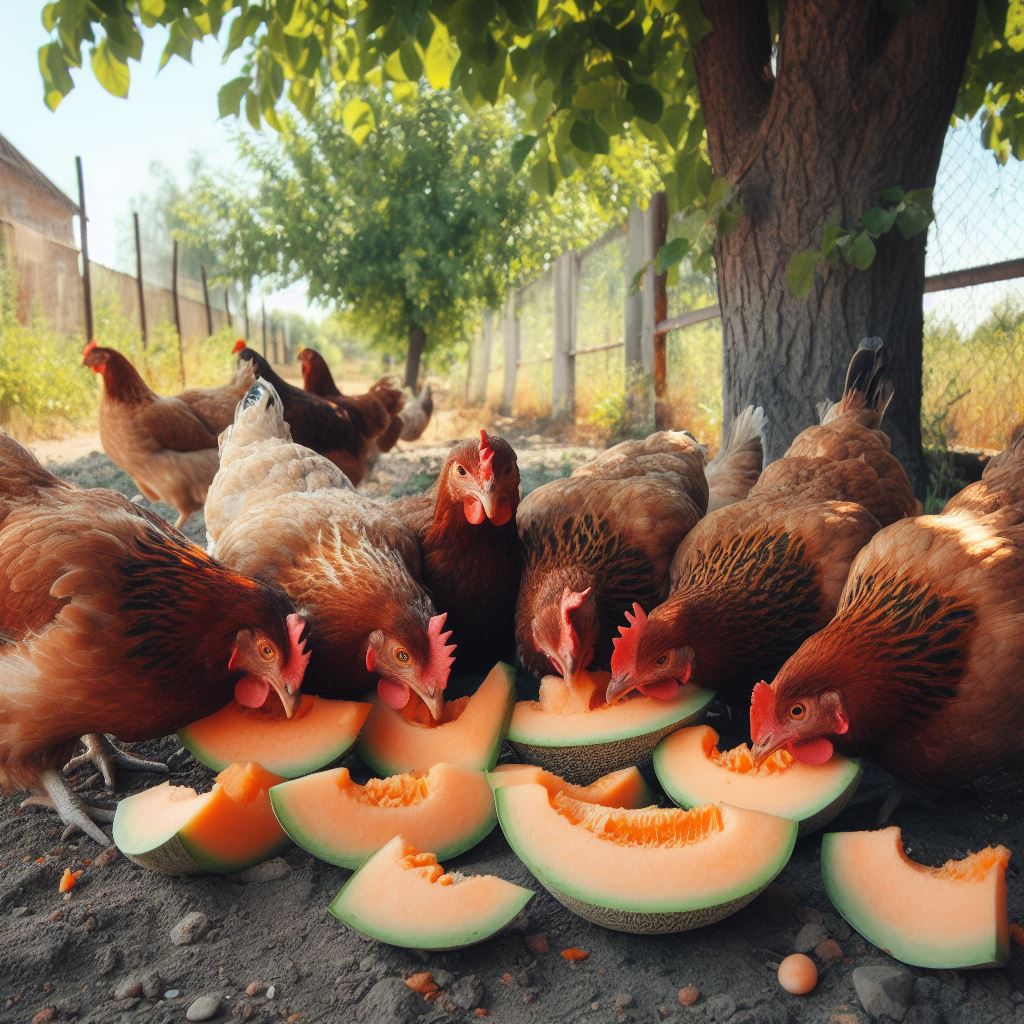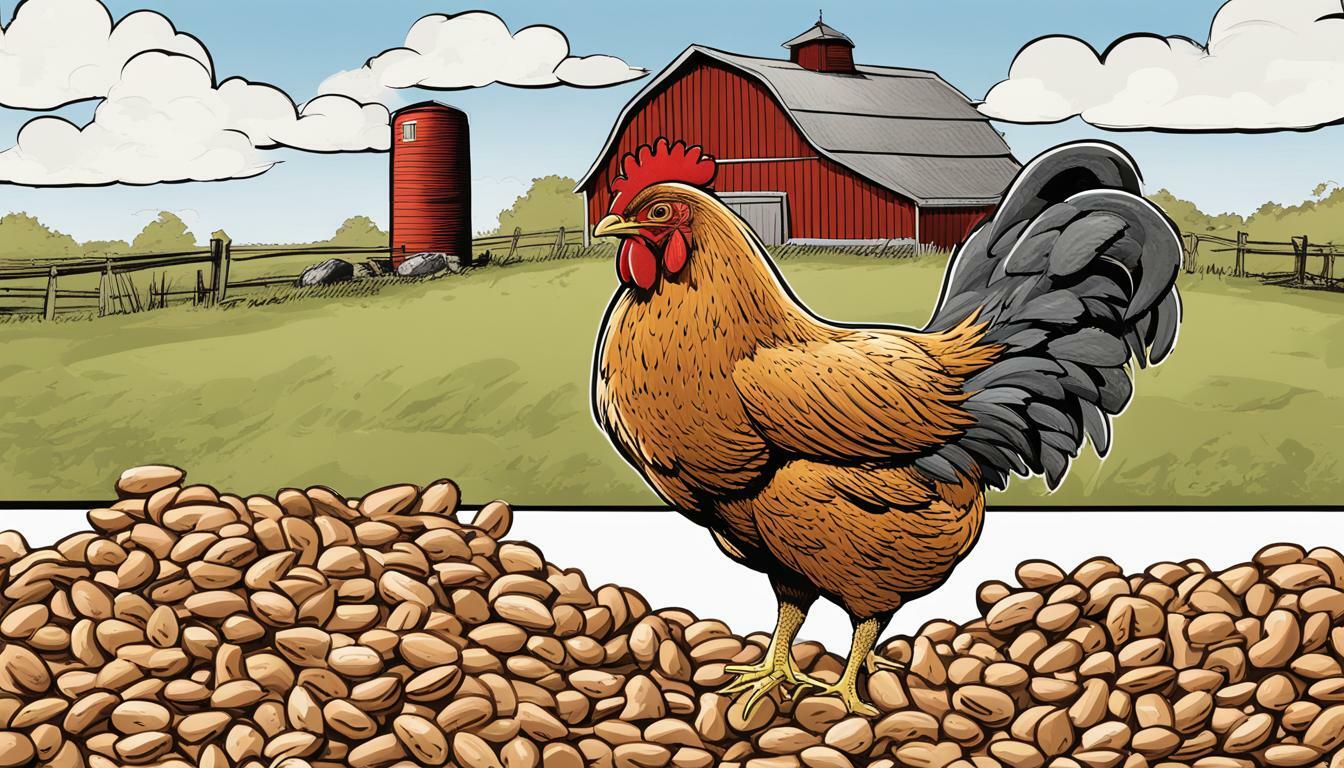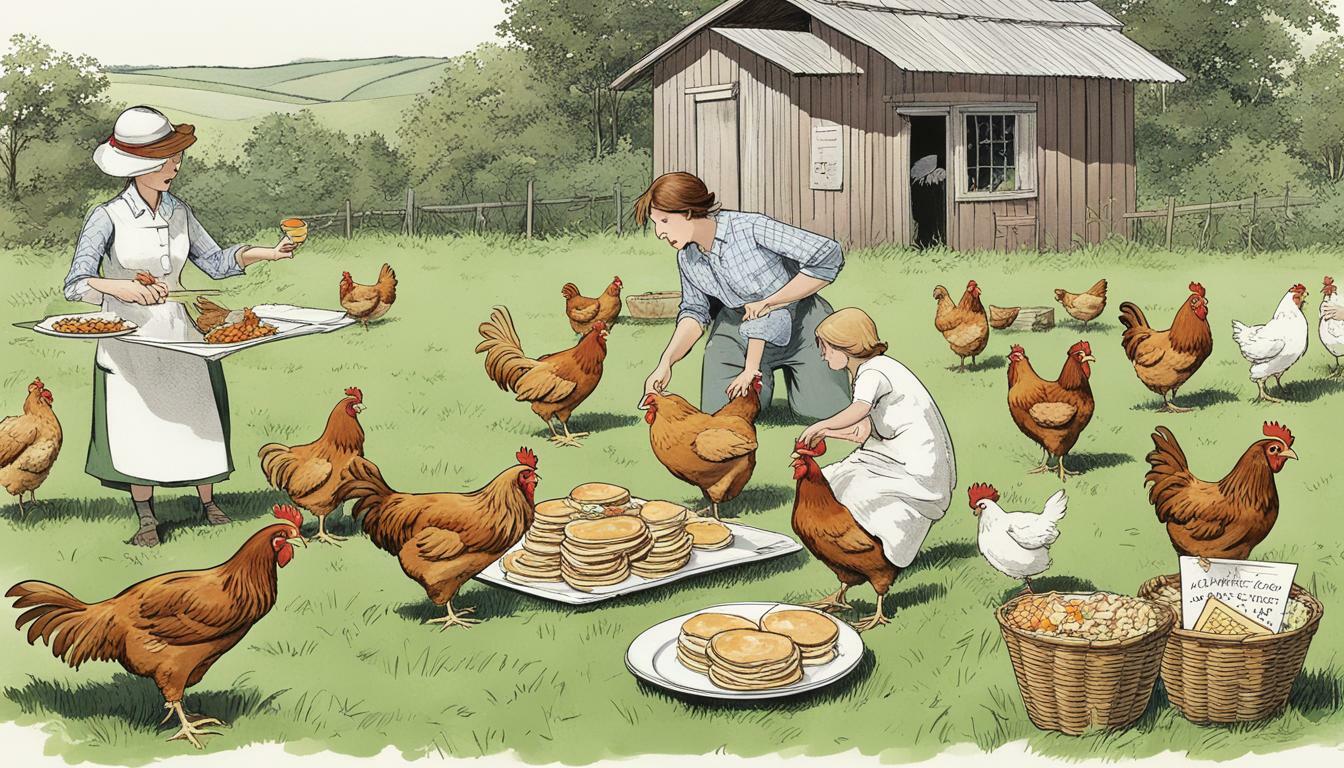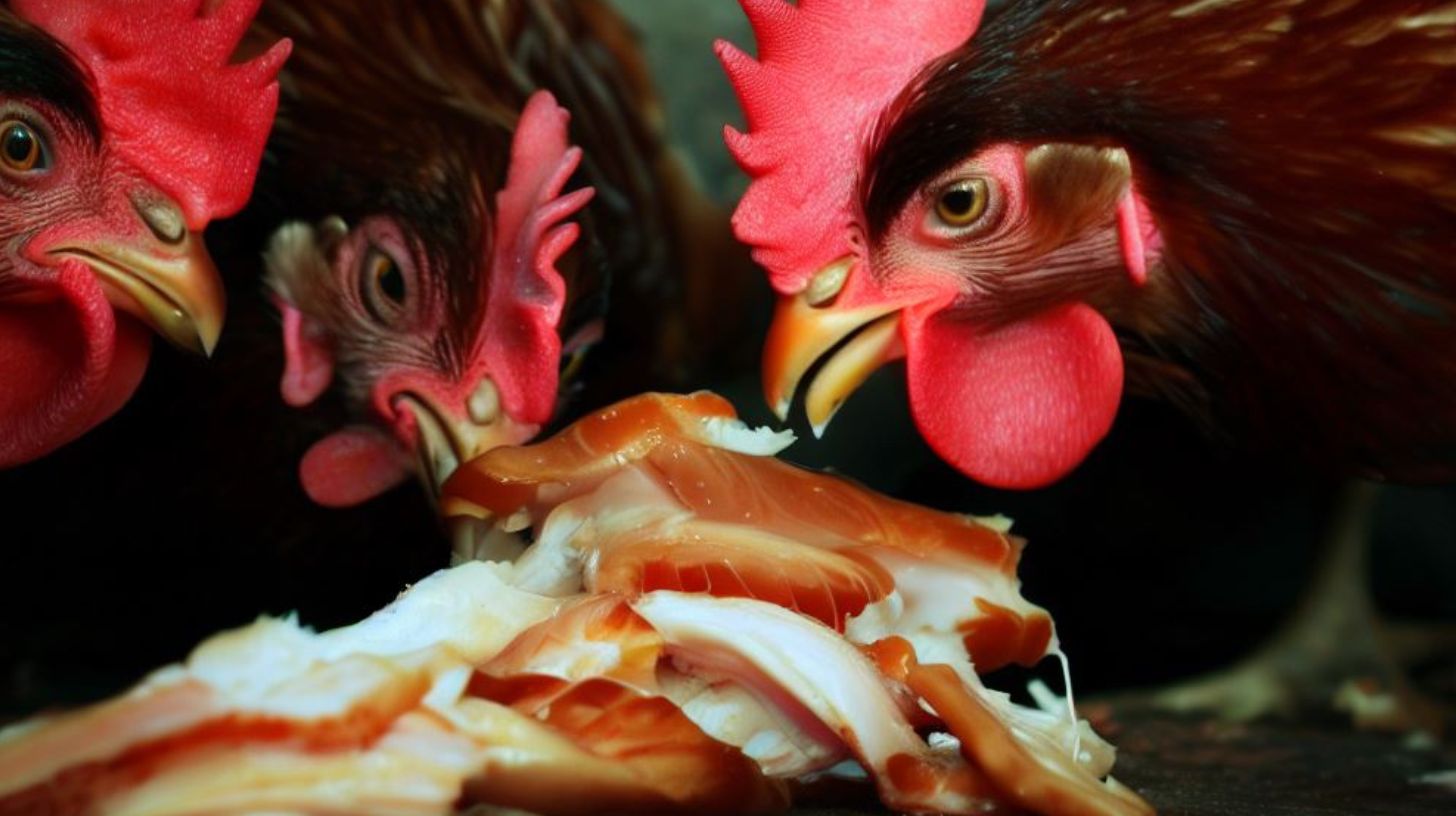Do Chickens Like Cantaloupe?

Table of content:
Cantaloupe is a delicious and nutritious fruit that can be a tasty treat for backyard chickens. As responsible chicken owners, it’s important to understand what parts of cantaloupe are safe for chickens and how to properly feed them.
In this comprehensive guide, we’ll cover everything you need to know about feeding cantaloupe to chickens.
Cantaloupe, also known as muskmelon or rockmelon, is a popular variety of melon well-loved for its sweet, juicy orange flesh. It’s an excellent source of vitamins A and C, potassium, fiber and other key nutrients.
However, chickens cannot live on cantaloupe alone. Too much can upset the digestive system.
Chicken owners will learn what parts to feed, how much to offer and how to serve it.
What Exactly is Cantaloupe?
Cantaloupe is a member of the Cucurbitaceae family which also includes watermelon, honeydew and pumpkin. It’s a vine-grown fruit with a tough rind and sweet, normally orange flesh. The rind can vary from grey-green to yellow and is covered in a textured web pattern.
Popular cantaloupe varieties include:
- Charentais – Small, orange flesh with a smooth rind
- Honeydew – Green flesh with a sweet flavor
- Tuscan – Textured rind with orange flesh
- Cantaloupe – The most common with orange flesh
Cantaloupe grows well in warm climates. The peak season is May through October. Ripe cantaloupe feels heavy for its size and emits a sweet, fruity aroma.
Can Chickens Eat Cantaloupe?
Yes, chickens can eat cantaloupe safely and enjoy it. The rich beta carotene content provides vitamin A for eye and skin health. The nutrients boost immunity against disease while supporting egg production.
Cantaloupe provides an excellent incentive for picky eaters. The sweet taste and juicy texture are irresistible treats chickens love. It adds beneficial variety to their diet.
However, chickens cannot subsist on cantaloupe alone. The high water and sugar content can cause diarrhea if overfed. Chickens have simple digestive systems requiring a balanced diet. Cantaloupe should only supplement a quality chicken feed.
Follow proper feeding guidelines to allow chickens to enjoy cantaloupe as a healthy, nutritious treat.
 What Parts of Cantaloupe Are Safe for Chickens?
What Parts of Cantaloupe Are Safe for Chickens?
Chickens can safely eat the flesh of ripe cantaloupe. The flesh provides the healthy nutrients that benefit chickens. Avoid unripe or damaged flesh that can harbor bacteria.
The rind of the cantaloupe is also safe for chickens. Many chickens enjoy pecking at the leftover rind. It provides enrichment activities. The rind contains beneficial nutrients as well.
However, chickens should not eat the seeds or stems. The seeds can choke chickens. They also contain small amounts of toxins that can cause crop impaction.
To safely feed cantaloupe, follow these steps:
- Select ripe, undamaged cantaloupe.
- Wash thoroughly before cutting to remove bacteria.
- Cut the cantaloupe and scoop out the flesh.
- Slice the flesh into small pieces to prevent choking.
- Remove all seeds, stems and outer rind if desired.
- Chop any leftover rind into large pieces for pecking.
- Discard the seeds and stems or compost.
Properly preparing cantaloupe maximizes the nutritional benefits for chickens while reducing risks.
Feeding Tips for Cantaloupe and Chickens
Cantaloupe should always be fed in moderation as a supplemental treat. Follow these tips for successfully adding cantaloupe to your chickens’ diet:
- Start with young cantaloupe before fully ripe. The lower sugar content prevents diarrhea.
- Introduce cantaloupe slowly at first to monitor reactions.
- Feed only washed, fresh cantaloupe, not leftovers or from the compost pile.
- Limit feeding to a few small slices 1-2 times per week maximum.
- Mix in with their regular feed for balanced nutrition.
- Remove rinds after 10-15 minutes to prevent boredom pecking.
- Ensure plenty of fresh water is available at all times.
- Watch for loose droppings as a sign they’ve had too much.
- Remove cantaloupe if diarrhea or other negative reactions occur.
Following proper portions allows chickens to enjoy the nutritional benefits of cantaloupe safely. Reduce feeding if negative reactions occur.
Can Chickens Eat Cantaloupe Rinds and Seeds?
Cantaloupe rinds are safe for chickens to eat. The outer rind contains antioxidants like vitamin C, beta carotene and fiber. Chickens enjoy pecking at leftover rind as enrichment.
However, the seeds should not be fed. Cantaloupe seeds can cause crop impaction or intestinal blockage. The seeds contain trace amounts of a toxin called cucurbitacin which can be harmful in large quantities.
A few accidentally ingested seeds will likely not harm a chicken. But avoid deliberately feeding the seeds. Compost or discard seeds and stems after preparing cantaloupe.
Chop rinds into large pieces too big to swallow if you allow chickens to peck at them. Remove after 10-15 minutes to prevent overconsumption. Cantaloupe flesh and properly prepared rinds make the safest treat.
Other Fruits and Vegetables Chickens Can Eat
In moderation, many other fruits and vegetables provide a healthy variety for backyard chickens. Some other options chickens enjoy include:
Fruits:
Vegetables:
Fruit and vegetable scraps can supplement a balanced chicken diet. They provide hydration, important nutrients, and enrichment. Introduce new items slowly and limit to a few times a week.
Substitute excess chicken feed with veggie scraps to prevent obesity. Always provide a quality complete feed as their dietary staple. Monitor chicken’s health and reduce produce if adverse reactions occur. With proper moderation and variety, fruits and vegetables are a delicious, nutritious treat.
Concluding Thoughts on Feeding Cantaloupe to Chickens
In conclusion, cantaloupe can be a safe, healthy and enjoyed treat for backyard chickens. Chickens benefit from the vitamin A, potassium and beta carotene content. The sweet, juicy flesh entices picky eaters to consume a more varied diet.
Chicken owners should feed only ripe, washed cantaloupe flesh and properly prepared rinds. Avoid seeds and stems. Introduce cantaloupe slowly and limit to 1-2 times per week maximum. Mix with regular feed for balanced nutrition and monitor health. Reduce feeding if diarrhea or other negative reactions occur.
With proper moderation, preparation and monitoring, cantaloupe makes a nutritious supplemental treat that allows chickens to safely enjoy a new flavor and texture. It can enhance health and happiness for a well-rounded backyard flock.
Welcome. I’m Adreena Shanum, the proud owner of this website, and I am incredibly passionate about animals, especially poultry. I founded adreenapets.com as a labor of love, stemming from my desire to share my knowledge and experiences with poultry enthusiasts worldwide.




